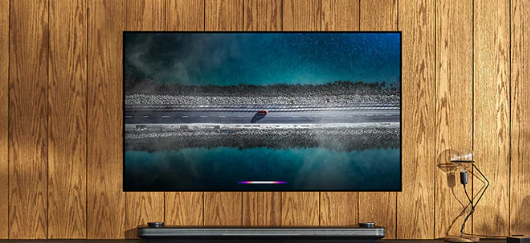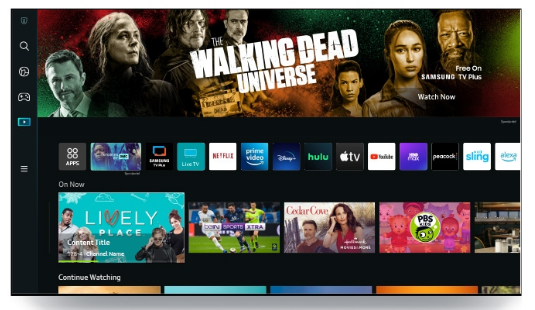
How do I set up a VPN on a computer at school?
A virtual private network, or VPN, transforms a public internet connection into a private network that grants you online privacy and anonymity.
In order to prevent anyone from tracking your online activity, it does this by masking your IP (internet protocol) address.
In general, VPNs create an encrypted and secure connection to offer more privacy than a secured Wi-Fi hotspot.
Table of Contents
Can You Put A VPN On A School Computer?
When using a public or shared network, VPNs can be used to protect your security and privacy. They cannot use the computers in the classroom, though.
You’ll need to ask your school administrator for permission if you want to use a VPN on a school computer.
If I Use A VPN On A Computer At School, Will I Face Consequences?
If you use a VPN at school, you might face consequences, but these depend on your institution’s rules. If your school does not expressly prohibit using a VPN, you might be able to get away with it in some circumstances.
In contrast, if you are discovered using a VPN in other circumstances, you might face disciplinary action. Before using a VPN, make sure to review the policies of your school.
The Pros Of Using A VPN On School Computers
When working remotely or doing schoolwork while using a public connection, VPNs are ideal. This guarantees the security of your data.
Here are some of the main pros of using a VPN for your school computer:
- Anonymity: When you use a VPN, your network’s data is hidden so that it appears to be coming from a different location. Anyone attempting to access your computer’s data will instead be able to do so by accessing the data on the VPN server.
- Secure Connection: Using a VPN ensures that your data is hidden behind the fake information the VPN provides because it is possible for others using the same public connection to gain access to your computer’s internal network.
- Cost-Effective: While there are many security options available for your school or campus computer, VPNs do not have high licensing costs or ongoing monthly fees.
The Cons Of Using A VPN On School Computers
Although there are a lot of benefits to using a VPN, it’s important to be aware of the drawbacks as well:
- Slow connection rates A VPN uses a certain amount of bandwidth and is a virtual connection, so it can reduce internet speeds.
- Software Blocking: Some websites, particularly e-commerce sites, use VPN blocking software to limit your access.
- Set-Up: An improperly configured VPN can cause data leaks because it is more difficult to set up than a typical internet connection.
- Dropped Connections: The VPN may occasionally lose connection, and when this happens, all of your network data is visible.

How Do I Select The Ideal VPN On A Computer?
There are a few crucial points to keep in mind if you do choose to install a VPN on your school or campus computer, chief among them being the fact that not all VPN providers are created equal.
Different connection rates, features, and services are provided by each VPN provider. Make sure to research the provider before you purchase a VPN to make sure you are getting the best deal and are not being duped.
When looking for a VPN, some things to bear in mind are as follows:
- Privacy: Verify that the VPN provider does not retain user data (doing so would essentially defeat the purpose of getting a VPN).
- Legality: It is prohibited to use a VPN in some nations. First, confirm the legal requirements in your nation.
- Cost: Depending on the location, speed, and duration of service, a VPN’s price can change. Don’t pay for features you don’t need; instead, compare prices.
Be cautious of “free” VPN services as well. Offering this service for free doesn’t make sense because virtual businesses must invest money to get started. Free VPN providers have a reputation for stealing and selling customer data rather than safeguarding it.
How Do I Install A VPN On School Computers?
Type “settings” after clicking the Start button. Select Settings > Network & internet > VPN > Add VPN. Make the following changes in Add a VPN connection: Pick Windows (built-in) as your VPN service provider.
The solution is to choose and subscribe to a VPN provider from the list above, then use a VPN. Downloading a suitable VPN app is necessary. By launching the VPN app, choose the VPN server for your nation.
Can My School See My VPN?
Schools have access to all network traffic, including VPN traffic. Your school’s administrator will be able to see the websites you visited and the data you sent and received if you use a VPN on a school computer.
If you’re looking for a more complete solution, take into account utilizing a full-fledged virtual private network (VPN) service. These services provide software and device support for your computer and mobile devices.
Compared to proxy servers, which are more difficult to find and block, they offer more robust security features.
Can You Install A VPN On A Laptop For School?
There are two choices for school Wi-Fi: picking the best VPN service provider and signing up. You need to download a VPN app in order to use one. After installing the app, choose the VPN server for your country.
Can Schools Block VPNs?
By monitoring network traffic, schools can detect and block VPNs. You must use a VPN provider that is not blocked by your school if your institution forbids their use. A complete virtual private network (VPN) service is an alternative.
Without A VPN, How Can You Access A School Computer?
A school computer can be unblocked using a few different techniques without a VPN. Utilizing a proxy server is one option. By routing your traffic through a different server, proxy servers act as an intermediary between your computer and the internet.
Utilizing a web-based service like Tor, which encrypts your traffic and routes it through numerous servers to conceal your identity, is another option.
Conclusion
You might not be too concerned about keeping your schoolwork safe, but if you use your computer for online banking or shopping, you must make sure that your information is protected when you access public networks.
Although using a VPN has drawbacks, the benefits far outweigh the drawbacks. Before you buy a VPN for your computer, think about this information and compare options.



